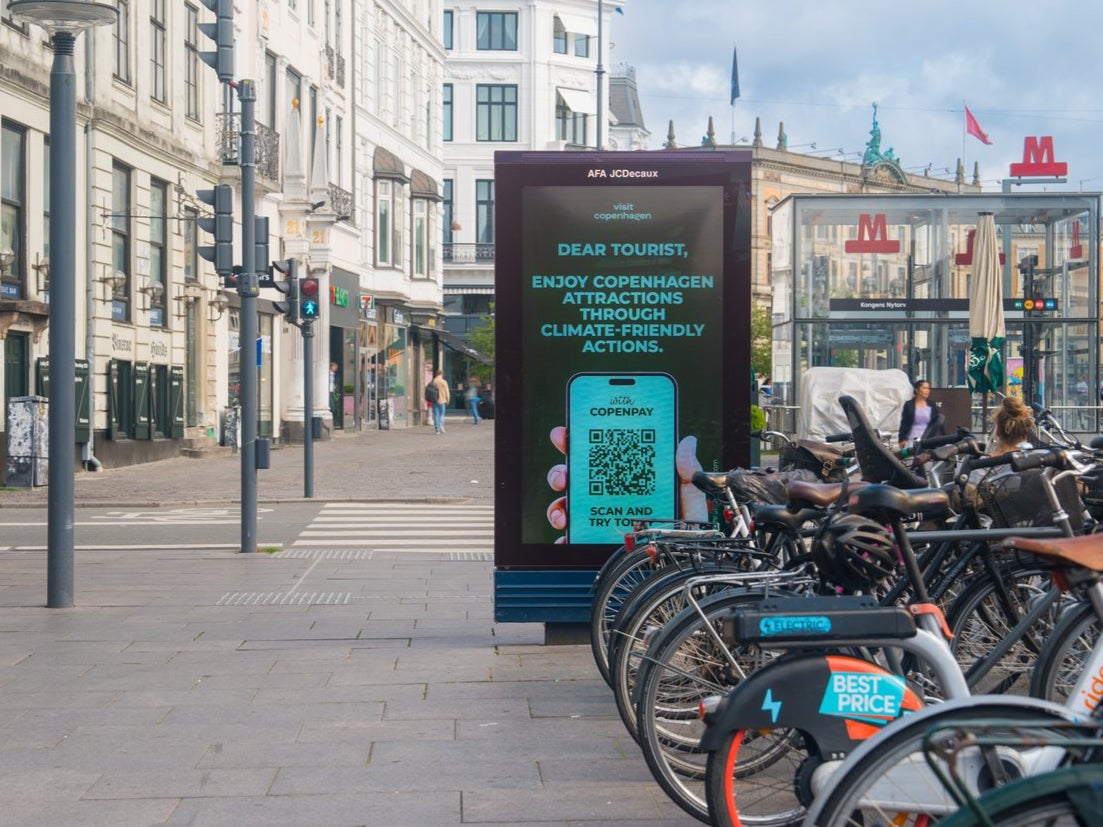Visiting Copenhagen, Denmark’s vibrant capital? Arrive at its Frilandsmuseet, the Open Air Museum, by bike or public transport, and you’ll get a free coffee; help out in an urban garden and you’ll get a free meal.
It’s all part of the city’s pilot CopenPay scheme, which rewards tourists for planet-friendly actions. The initiative, which runs until 11 August, is unprecedented. But ‘climate rewards’ – which encourage travellers to make sustainable choices – exist elsewhere. Should they become the norm?
Relations between tourists and local people became increasingly fraught this summer, with protests in destinations like Mallorca, Tenerife and Barcelona.
Cruise ships have been advised to prepare to switch their routes to avoid protest groups – such as ones armed with water pistols in Barcelona. Local people are rejecting the relentlessness of mass tourism, which offers them little benefit, while crowding – and pricing – them out of their homes. The Copenpay scheme is a rare ray of positive news: the carrot instead of the stick (or water gun).
“Encouraging responsible travel is essential to mitigate the negative impacts of mass tourism and to foster better relationships between locals and visitors,” says Julijo Srgota, director of the Dubrovnik and Neretva County tourist board. Dubrovnik was named the most ‘overtouristed’ European destination in 2019, and now fines tourists who wheel, rather than carry, noisy suitcases in the old town.

Read more on travel:
Most destinations don’t want to see tourism disappear entirely. It makes vast economic contributions. But many do want more responsible visitors.
The CopenPay scheme highlights Copenhagen’s green reputation. The city’s many eco landmarks include CopenHill, a waste-to-energy plant that encourages tourists to slalom down its dry ski slope roof. Other ‘green’ destinations could be well positioned to follow its example. Many are already working towards making tourism more responsible.
“CopenPay is a brilliant way to nudge travellers to make sustainable choices,” says Susanna Sorensen, marketing manager at Visit Faroe Islands. They have long insisted that tourism can be used for good, in 2019 announcing temporary closures across the islands, when travellers could come as ‘voluntourists’…
Click Here to Read the Full Original Article at The Independent Travel…
